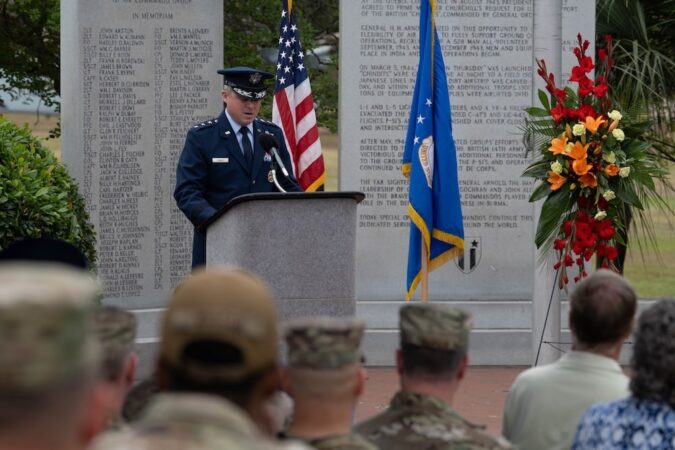
Yesterday marked the 45th anniversary of Operation Eagle Claw, the ill-fated mission to rescue American hostages held in Tehran, Iran. At Hurlburt Field, members of the Air Force Special Operations Command (AFSOC) and the 1st Special Operations Wing gathered alongside veterans and family members to honor the eight servicemen who lost their lives during this pivotal moment in military history.
The ceremony, held at the Hurlburt Field Memorial Air Park, commemorated not just a tragedy, but a transformative event that would forever reshape American special operations.
Background:
On April 24, 1980, American forces embarked on a daring rescue mission into hostile territory. Their objective was clear: bring home 52 American citizens who had been held hostage in Tehran since November 4, 1979. The joint-services operation brought together elite personnel from across the military branches, including five Air Commandos from Hurlburt Field’s 1st Special Operations Wing.
Disaster struck as the mission unfolded at the staging area known as Desert One in the Iranian desert. During withdrawal preparations, a helicopter collided with a transport aircraft carrying both personnel and jet fuel. The resulting fire claimed eight lives and marked the mission as a tactical failure—yet paradoxically planted the seeds for strategic transformation.
“The Guts to Try”
At the remembrance ceremony, Lt. Gen. Michael Conley, AFSOC commander, reflected on the significance of this watershed moment. The commander remembered the events at Desert One not just as a moment of loss, but as an inflection point forged by those who had the courage to attempt the mission.
- The lessons learned from Operation Eagle Claw directly contributed to the U.S. Special Operations Command (USSOCOM) creation in 1987 and the establishment of AFSOC in 1990.
Retired Chief Master Sgt. Bill Walter, who attended the ceremony, noted that the Air Commando motto—”Any Time, Any Place”—isn’t merely a slogan but a way of life embodied by those who participated in Operation Eagle Claw.
The spirit of adaptability, courage, and commitment demonstrated that night in the Iranian desert continues to inspire today’s special operators. Lt. Gen. Conley observed that the sacrifice of those eight servicemen reminds everyone of the cost of readiness, the courage it takes to lead from the front, and the responsibility they bear to honor this legacy through excellence in everything they do.
- For the men and women currently serving in Air Force Special Operations, this legacy is a living tradition that guides their training and operations. They carry forward the lessons paid for dearly by their predecessors—lessons that transformed American special operations into the highly capable force it is today.




Many local Marines knew Lieutenant General Chuck Pitman who participated in Operation Eagle Claw. https://epnaao.com/BIOS_files/REGULARS/Pitman-%20Charles%20H.pdf